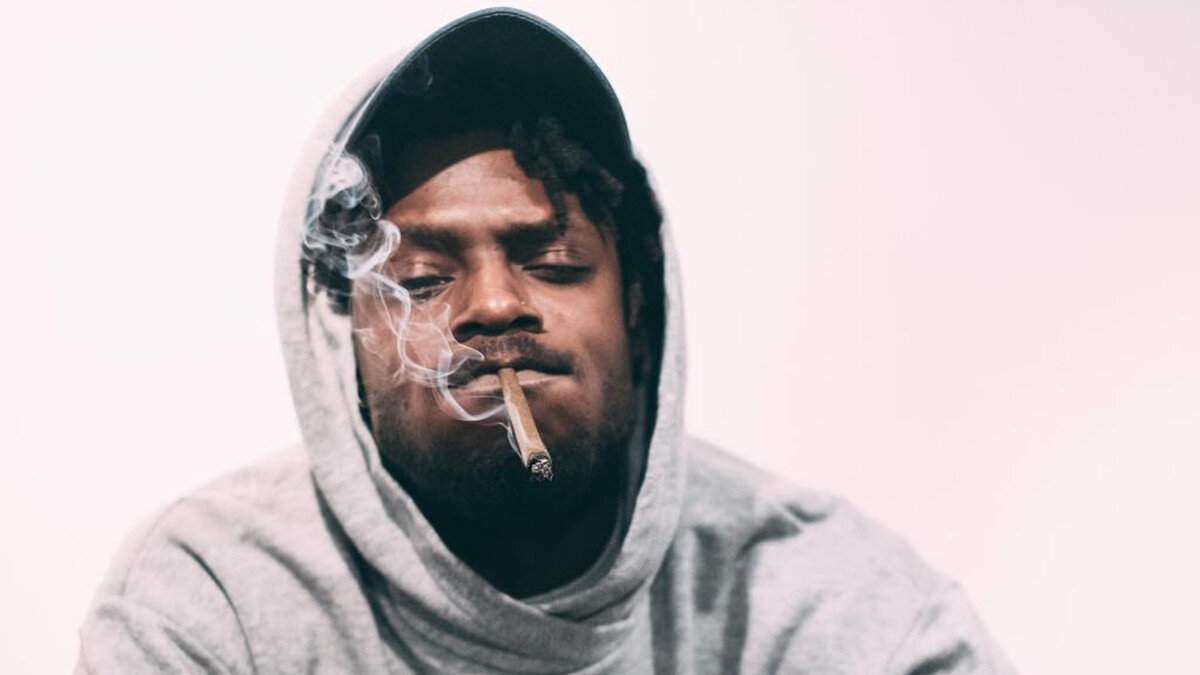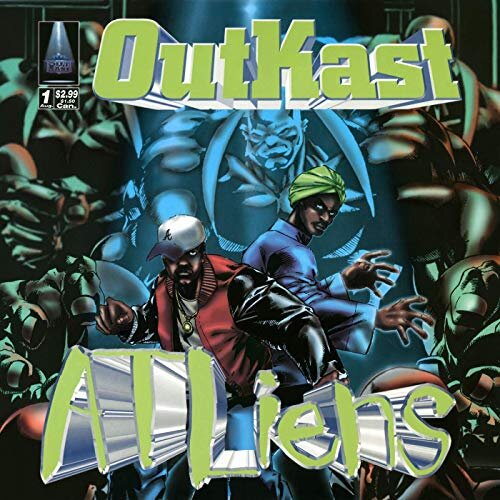Artist Spotlight: Isaiah Rashad
In the series, “Artist Spotlight”, I will delve into the life and work of my favorite musicians. To understand an artist, one must understand where they come from, and what inspired them to become a musician.
The artist’s entire discography will also be outlined in this series, with notable tracks analyzed on a deeper scale.
Enjoy.
Bio
Hailing from Chattanooga, Tennessee, Isaiah Rashad has quickly become one of the most talented and unique rappers of this generation. Rashad is known for his smooth southern flow, jazz-infused beats, and hard-hitting bars.
Growing up, Rashad originally wanted to be a preacher until his brother put him on to Outkast’s album “ATLiens”. When listening to Outkast, one can understand why it inspired Rashad to start rapping. The rap duo of Andre 3000 and Big Boi created music far beyond its time, with a space-age production and smooth southern flow. This album spurred Rashad’s interest in rapping, and he became intensely focused on making music. He started rapping in the 10th grade and would record music with his friends on their laptops.
Shortly after high school, Rashad went on to attend Middle Tennessee State University. He quickly befriended young artists while attending college. One of his friends who studied music production introduced Rashad to a friend who had a recording studio. Coincidentally, the man happened to be Rashad’s cousin. Isaiah was then able to record music in that studio for no charge. Rashad began bouncing around from studio to studio. He eventually dropped out of college and lived wherever he could record.
Rashad’s tenacity and obvious skill exposed him to other talented artists, which quickly led to him gaining industry connections. His big break was in 2012 when he toured with Juicy J, Joey Badass, and Smoke DZA on the Smokers Club Tour. Soon after he toured with those big names, Rashad was getting attention from various record labels, but he wasn’t interested in signing with any of them. Rashad was uncompromising when it came to his music, and he felt as though none of the labels would be a good fit for his image. He didn’t want to make any radical changes to his art that would detract from his persona. He began releasing free singles on Soundcloud, produced by extremely sought after artists like MF Doom and even Flying Lotus. Rashad was quickly becoming a known talent in the music industry.
Rashad eventually signed with the southern California based label, TDE, with huge names like Kendrick Lamar, Schoolboy Q, and SZA, among others. After he released his first EP, Cilvia Demo, Rashad gained lots of popularity and became a XXL Freshman. XXL is an American Hip Hop magazine that is most well known for its yearly feature of “XXL Freshman”, featuring the most talented of up and coming rappers.
Discography
My favorite of Rashad’s early singles is Hii (Fuck Love), produced by D. Sanders. It caught my attention recently however it was released early on in his career. Rashad raps about being lost and confused and drug/alcohol abuse. He did this with such a smooth and singular flow, over a hazy and slow production that can now only be described as an “Isaiah Rashad type of beat.”
In 2014, Rashad Released his first EP, Cilvia Demo. I started listening to Rashad in 2015, during my senior year of high school. This was the first of his discography that I was exposed to. The transition from high school to college can be a turbulent one, and Rashad’s debut EP got me through some rough times.
On Cilvia Demo Rashad raps about failed relationships, dealing with intense bouts of extreme depression, and his experience with drug abuse. Cilvia Demo has party anthems like R.I.P. Kevin Miller with a hook that can be easily rapped along too; “Y’all live for bitches and blunts, We live for weed and money.” Rashad describes that while his peers are focused on hedonistic endeavors, he is focused on building his career and accumulating wealth. Rashad also gives us a glimpse into his struggles as an addict, “Codeine I’m back, leanin’, I cope with my demons.” This is one of the first glimpses of Rashad’s struggle with mental health and drug abuse which he revisits numerous times on Cilvia Demo. One thing that sets Rashad apart from other rappers is how outspoken he is about depression and drug abuse, a theme that is found throughout his work.
My favorite of Isaiah Rashad’s songs and arguably his most popular is Heavenly Father, which can be found on the latter half of Cilvia Demo. A track that has such an uplifting and jazzy beat is paradoxical in its nature due to the extremely dark lyricism Rashad gives the listener. Right off the bat, Rashad raps, “See, I don’t wanna think of suicide, So please don’t take the lock key off my door.” Rashad has mentioned how when he was younger he often struggled with extreme depression, and his loved ones took the lock of his door. By doing this Rashad explains how he is aware that they know of his suicidal tendencies, which brought him back to a dark and undesirable place. At the start of the second verse, Rashad raps, “Look now, I'm prayin' that I make it 25, They be callin' doctor for my health, And ‘no’ is kinda hard to say to drugs, 'Cause I been havin' problems with myself.” Now Rashad isn’t talking about dying due to gang violence or the police, he is referencing suicide. His loved ones are trying to get him to seek help for his condition which leads to anti-depression meds, something that can help in the short term but will eventually add to Rashad’s palette of addictions. In the third and final verse, Rashad raps, “Here, look, ayy, I smoke too much: the problems of a 20-somethin', I drink too often, there's liquor pourin' from the faucet, You would assume from following the tunes, That I'm doomed to die young, addicted to dry plum.” As evident throughout this song and record, Rashad makes a reference to suicide and alcoholism. He believes that active listeners will grow concerned with his mental state from his heavy-hitting lyrics.
For its time, Cilvia Demo was a groundbreaking album in rap music. Not only is Rashad a pioneer in utilizing jazzy production, but he is also outspoken about addiction and his personal experiences with attempting suicide. A rare and sensitive topic that most rappers never even attempt to address.
Isaiah Rashad’s first studio album is The Sun’s Tirade. Released in the summer of 2016, I listened to this album non-stop. It was evident that Rashad has taken leaps forward as both an artist and an individual. The production and lyricism on The Sun’s Tirade took a different tone, one of growth and overcoming the personal demons that plagued him during the recording of Cilvia Demo. The second track on the record is 4r Da Squaw, which starts off by eliciting a more positive approach to lyricism compared to his earlier work.
The first line of the chorus is, “If I can pay my bills, I’m good, I’m coming over.” Rashad has referenced his struggles with finances early on in his career, and after achieving more monetary success he is much smarter with his money. Rashad also raps about stepping up and becoming more of a father for his two kids, “By the beer, by ear, by boo – my Yari saying, You ain't nothin' but a baby, your fear is growin' up.” His son is growing up and learning how to speak, and in turn, is beginning to become more cognizant of his father’s drinking. Rashad counters his son’s realization by letting him know that his worry of growing up pales in comparison to Rashad’s previous struggles with alcoholism and suicide. My favorite track on The Sun’s Tirade is Find a Topic (Homies Begged). In the first verse, Rashad addresses how he has become much more emotionally resilient due to his past by rapping, “Non my heart can't break more, I can't even feel the papercuts.” Following this, Rashad goes, “Let me see my son and let me ball, let me ball, yeah...And the kids got me high enough to touch the rim, As a kid that's the only thing I wanted then.” Rashad is truly happy when he is with his daughter and son. He metaphorically claims that they get him “high enough to touch the rim”. Rashad explains that he always wanted to be able to dunk a basketball, and his kids bring him so much joy and fulfillment that it allows him to get the same feeling a slam dunk would give his younger self.
The Sun’s Tirade was an excellent step in terms of growth for Rashad, not only musically but also personally. Rashad let his fans know that despite his struggles, he is in a much better place and is bettering himself as a young adult.
Looking Forward
So what’s next for Isaiah Rashad? The rapper amassed a cult following and has been relatively secret about his upcoming studio album. Aside from a few cryptic twitter posts, Rashad hasn’t said much about his upcoming project. However, a few months back, Rashad recorded himself on IG live in Kenny Beats’s studio. He not only gave his dedicated fans a sneak peek into a new track on his album, but he also announced the name of his next project, The House is Burning.
Isaiah Rashad is an incredible talent, not only for his choice production and untamed style, but for what he provides lyrically. We all have our daily battles, and like Rashad, many of us are struggling with a multitude of afflictions regarding mental health. Aside from Kid Cudi, and most recently Kanye West, Rashad was one of the first rappers of our generation to put his foot forward and introduce topics like drug abuse and depression. Rashad wasn’t cute with his bars, he let them slap you right across the face. He gave those of us who struggled with similar demons a voice of recognition and understanding. Sometimes that is all one needs, knowing they are not alone, and that other people are dealing with similar issues. Isaiah Rashad was unafraid to address the taboo topic of mental health in rap music, and for that, he deserves our praise.




